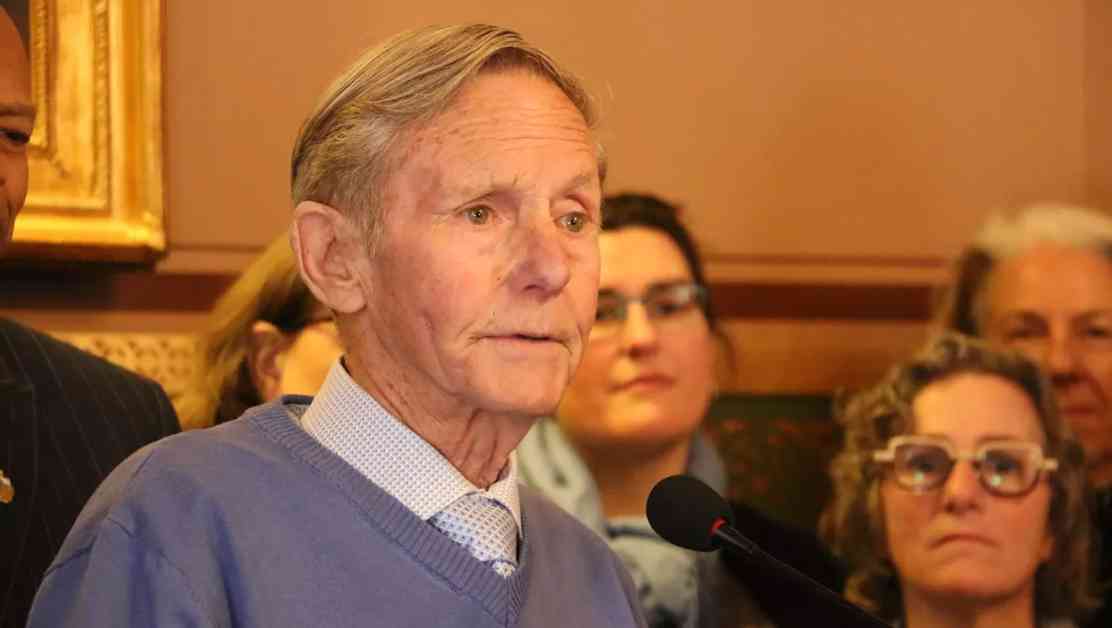Vermont Democrats Rally Behind Universal School Meals Initiative
Gov. Phil Scott’s proposal to cut an $18.5 million program providing free meals to schoolchildren has sparked a fiery response from educators and Democratic lawmakers. Critics argue that eliminating this vital program would not only harm children but also fail to significantly alleviate tax rates. This contentious issue came to a head during a recent Statehouse press conference, where supporters of universal school meals condemned the governor’s plan as shortsighted and impractical.
Senator Joe Major (D-Windsor) minced no words, stating that Governor Scott’s decision to slash the popular program demonstrates a lack of understanding of its broader implications. Major emphasized that such a move would disproportionately burden middle-class families, who are already struggling to make ends meet. The sentiment was echoed by former Senator Bobby Starr (D-Essex Orleans), who highlighted the program’s critical role in supporting families in the Northeast Kingdom.
The federal government currently contributes approximately $17 million to the universal school meals program, enabling students to access free breakfast and lunch irrespective of their family’s income status. The remaining $18.5 million is covered by the state education fund. Governor Scott has argued that the current system inadvertently benefits affluent families, who can afford to pay for their children’s meals. His proposed solution involves reverting to a pre-pandemic model where only low-income students receive free meals, primarily funded by the federal government.
In response, Democrats have vehemently opposed this rollback, citing concerns about fairness and logistical challenges. They point to estimates from the Joint Fiscal Office, indicating that reinstating a price-based meal system could incur additional costs for school districts, including administrative expenses and equipment upgrades. Moreover, local farmers who supply fresh produce to the program could face financial losses if participation declines due to changes in meal eligibility requirements.
Representative Heather Suprenant (D-Barnard) expressed disbelief at the notion of debating the program’s necessity, emphasizing the tangible benefits it provides to Vermont families. While Democrats have not outlined specific budget cuts or revenue sources to maintain property tax rates, they have underscored the educational and social value of universal school meals. According to Senator Major, ensuring students are well-fed is not just a moral imperative but also a fundamental aspect of effective learning.
Major shared a poignant anecdote of a meal program manager who tearfully recounted a heartbreaking incident under the previous meal system. Due to outstanding fees, the manager was compelled to deny a 6-year-old child a hot meal, substituting it with a cold cheese sandwich. Major’s emotional testimony underscored the human impact of policy decisions on vulnerable children, urging lawmakers to prioritize their well-being over budgetary concerns.
As the debate over Vermont’s universal school meals program intensifies, the underlying question remains: how can policymakers balance fiscal responsibility with social welfare? While competing interests and financial constraints complicate the decision-making process, the shared goal of supporting children’s health and academic success should guide any policy revisions. As stakeholders continue to advocate for their respective positions, the fate of this critical program hangs in the balance, awaiting a resolution that serves the best interests of all Vermonters.
Kevin McCallum is a seasoned journalist with a keen eye for political dynamics and social issues. With over 25 years of experience in reporting, he brings a wealth of insights to complex stories, shedding light on the human stories behind policy decisions. His dedication to truth and empathy underscores his commitment to fostering informed public discourse and advocating for marginalized voices in the media landscape.










